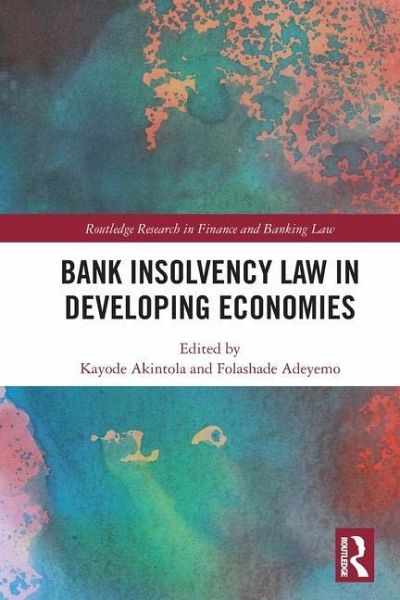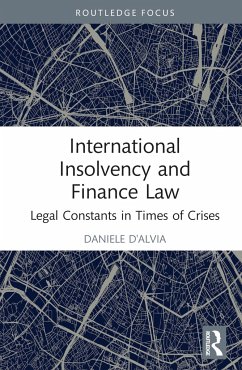
Bank Insolvency Law in Developing Economies
Versandkostenfrei!
Versandfertig in 6-10 Tagen
43,99 €
inkl. MwSt.
Weitere Ausgaben:

PAYBACK Punkte
22 °P sammeln!
The subject of bank stability has been under a great amount of political and legislative scrutiny since the mid-2007 to late-2009 global financial crisis. However, these efforts have centred on developed economies. Little coverage is given to strategies adopted by many developing economies. While there is a global discourse on the subject of insolvency generally, there is ample scope to contribute to the growing body of work on the narrow subject of bank insolvencies. This book provides a unique perspective on an emerging theme in at least two respects. First is the focus on selected developin...
The subject of bank stability has been under a great amount of political and legislative scrutiny since the mid-2007 to late-2009 global financial crisis. However, these efforts have centred on developed economies. Little coverage is given to strategies adopted by many developing economies. While there is a global discourse on the subject of insolvency generally, there is ample scope to contribute to the growing body of work on the narrow subject of bank insolvencies. This book provides a unique perspective on an emerging theme in at least two respects. First is the focus on selected developing economies and selected developed economies in the EMEA region alongside cross-border developments, with the objective of deciphering the regulatory approach to bank insolvencies. The second is the analytical consideration of methods that may be implemented to preclude or resolve bank insolvencies in developing economies. This book explores the nexus between developing economies and their banking institutions. Developing economies are acutely dependent on their banks for the functioning of their cash-based economies. Recent events, however, suggest a weakness in the long-term viability of some of their banks and a mixed-bag regulatory approach to redress this weakness. This book evaluates the effectiveness of regulatory frameworks in selected developing economies that are designed to prevent or resolve the insolvency of banks. At a time of global economic uncertainty, this book will prove to be a valuable resource to the discourse on the viability of banks, businesses, and economies in developing States.














